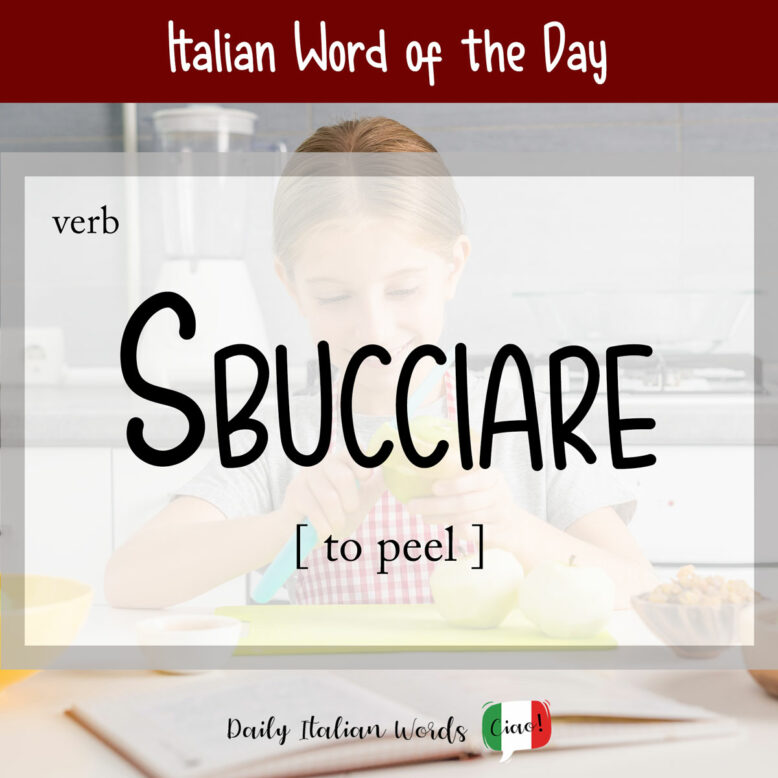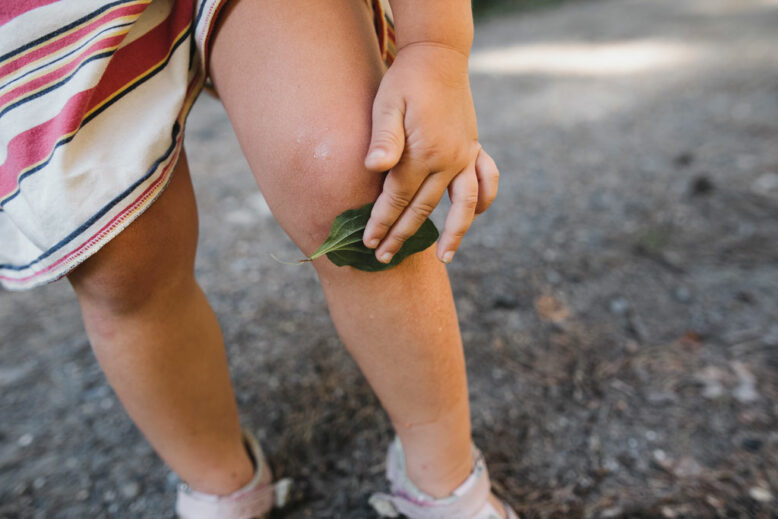The verb sbucciare means to peel, to shell, or to husk in Italian. In other words, it denotes the action of removing the skin from a fruit, vegetable or nut.

Sbucciare is composed of the s- prefix, which in this case denotes the absence or loss of some quality or attribute that is normally present, and buccia, which means peel, skin or rind.
Here is how sbucciare, a regular -are verb, should be conjugated in the present tense:
io sbuccio
I peel
tu sbucci
you (singular) peel
lui sbuccia
he peels
lei sbuccia
she peels
Lei sbuccia
you (formal) peel
noi sbucciamo
we peel
voi sbucciate
you (plural) peel
loro sbucciano
they peel
Non sbucciare la mela! Non sai che tutte le vitamine si trovano nella buccia?
Don’t peel the apple! Don’t you know all the vitamins are found in the skin?

Sbucciare can also be used figuratively to refer to the act of scraping a person’s skin. For example:
La scarpa mi ha sbucciato la parte posteriore del piede, procurandomi una grossa vescica.
The shoe scraped the back of my foot, giving me a big blister.
More often than not, you will see it used as a pronominal verb (sbucciarsi) when the meaning is to scrape. Pronominal verbs incorporate one or two pronominal particles (in this case, si) that alter the verb’s original meaning, often giving it an idiomatic purpose.
Il bambino si è sbucciato il ginocchio.
The boy scraped his knee.

Heather Broster is a graduate with honours in linguistics from the University of Western Ontario. She is an aspiring polyglot, proficient in English and Italian, as well as Japanese, Welsh, and French to varying degrees of fluency. Originally from Toronto, Heather has resided in various countries, notably Italy for a period of six years. Her primary focus lies in the fields of language acquisition, education, and bilingual instruction.


